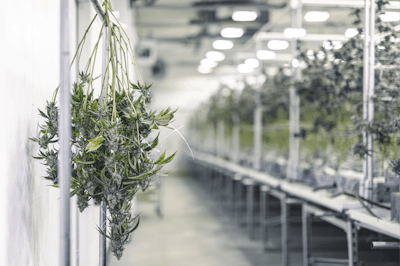
The state-legal cannabis landscape has changed drastically during the past decade. Once upon a time, experts recommended hiring someone with relevant commercial horticulture experience as the cultivation lead as part of the application process. Today, it’s more important than ever to employ someone with direct cannabis experience on your growing team. Establishing real connections with local officials and partners also is emphasized more so than in the past as a way to set yourself apart.
While many aspects of applying for a license have shifted, much has remained the same. As more states come online, entrepreneurs in emerging markets have the advantage of the advice from the people and states that came before. Here, experts weigh in on some of the top tips for applying for, and winning, a license.
Diane Czarkowski, founding partner of Canna Advisors
Allow plenty of time to complete the application, even if the official window is only 30 to 60 days, and stick to the deadlines.
Diane Czarkowski, founding partner of Canna Advisors, says she cannot stress enough to her clients the amount of time the application process will take. The most underestimated time sink: formatting, printing and assembling the application. It may sound like a simple process compared to actually writing and completing all the required documentation, but producing the physical application is quite a chore. Application instructions can be very explicit, specifying certain fonts, spacing, and binding restrictions, and states usually want several copies–some of them redacted of all identifying information. On the application deadline, at the government building where the applications must be submitted, you’ll find several other applicant groups scrambling to finish.
Omar Figueroa, Attorney, Law Offices of Omar Figueroa
If possible, reside where you plan to operate and establish relationships with local and state officials.
“Start volunteering in the local community. You will be received much differently after you live somewhere a few months. I have a client who did that, and pretty soon he was rubbing elbows with the mayor because they were both volunteering at a soup kitchen. Eventually, they saw each other at a cannabis meeting and recognized each other. It was organic. My client didn’t scheme to make this happen.”
Derek Sigman, director of licensing for SIVA
Provide realistic sales projections and ensure you have enough capital.
“You want to make sure that your projections are actually based on assumptions that are realistic and defensible. … The state knows when you’re inflating your overall revenues to try to demonstrate a high amount of tax revenue.”
The amount of cash an applicant needs on hand will largely depend on the area in which he or she plans to locate, he adds, and operating expenses also need to be considered.
“Real estate is always going to be one of your biggest up-front expenses, and when you start looking at how much capital you actually need … and how much you need to demonstrate in the application, you want to be able to at least show that you have … 20% [more capital] than what your anticipated operating costs are. When states start looking at groups for preliminary approvals for awarding a license, they are going to be wanting groups that are going to be able to enter the market quickly.”
Dina Rollman, SVP, Government & Regulatory Affairs, Green Thumb Industries (GTI)
Emphasize the educational role your company will play.
“[If you are applying in a medical market,] it is a good idea to stress that you intend to educate potential patients and doctors about cannabis as a tool for managing different medical conditions. It shows that you see your role not just as a business owner operating a for-profit business, but that you’re also taking on the responsibility of providing education to the community. Whether or not they become customers, you’re doing something positive to increase education and awareness for the benefit of people’s health and wellness.”
Peter Marcus, communications director, Terrapin Care Station; Colorado, Michigan, Pennsylvania
Carefully evaluate how you can make a difference wherever you locate.
“We applied in Pennsylvania along with about 179 other companies for 12 grower-processor licenses. What was interesting about Pennsylvania (and what we’re starting to see in other states that are creating application processes) is not just a requirement that you prove things you need to be a secure and responsible cannabis company—your security, floor plans, growing standards, pesticide use, financials and all of that—they also want you to show your worth to the state and to the communities in those states.
“Pennsylvania wanted us to show market diversification, employee diversification and community engagement. We’re located in Clinton County, a rural part of the state that has been left behind economically. Veterans are a major part of [its] population. The median income is $19,000 per year.
“This is a town that hadn’t had an influx of new jobs in a long time. We were bringing 45 new jobs, and we asked ourselves what part of the population we could affect the most. With such a high veteran population, we decided to hire veterans as 30 percent of our workforce. We held a job fair and placed a focus on veterans at the fair. We committed $25,000 to refurbishing a veterans’ memorial in Lock Haven, Pa.
“When you’re looking at new applications in new states and cities, you are going to see those applications focus on community engagement. Folks who are thinking about getting into the industry or want to apply for a new license should definitely make community impact a priority.”
Van McConnon, cannabis seed breeder, GoVan Seeds; formerly with Clear River LLC
Put together a well-rounded team of experts.
“You want someone who knows how to get permits and knows how to get the facility built. Also, hire a strong attorney who knows the state regulations and can help you interpret them correctly. You should have your attorney review your application, as well, like any legal document. Applying for a competitive license is essentially preparing a document focused on the law and the regulations promulgated in the legislature and the controlling agency, such as the Department of Agriculture, Marijuana Enforcement Division, etc.”
Avis Bulbulyan, founder and CEO, SIVA
Vet all your operators, vendors and business partners.
“A lot of groups fall apart because someone has something to hide, like a felony record for arrest of a grower, for example. ... You are spending a couple hundred thousand on an application. You might as well spend a few thousand on a private investigator to do a background check on your partners. The state will likely do background checks on each team member, even vendors. So when you bring on new partners, or hire vendors or consultants that have a direct interest in your operation, or if you’re paying them six figures, you want to make sure ... that your partner’s background is not going to hurt your chances of winning.”
Jay Czarkowski, founding partner, Canna Advisors
Be ready to pay for team members, if that helps you win the license.
“You want to be able to recruit PhD-level horticulturists or PhD-level chemists. Those are the kind of team members you want that are experienced and work well on an application. Some of those folks may require a stipend to join.
“When it comes to building that winning team, the better-prepared applicants will start early. … A winning team needs to propose high-level professionals on their applications. This can be a tricky situation as these applicants cannot yet commit to paying for a full-time position, since they don’t know if they will win a license. At the same time, these high-level professionals may currently be employed [elsewhere]. We typically handle this by recruiting the best people, but making that employment contingent on a license being awarded. And for the time and effort this person helps out pre-license, we’ll pay them for their time and willingness to go on an application.”
Read the Cultivation Startup & Expansion Guide

























